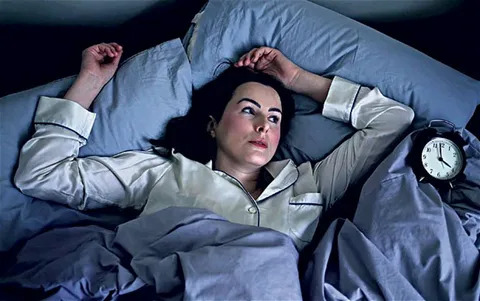First of all,
Anxiety can impede people’s ability to completely experience life, much like invisible chains. Constant anxiety, fear, and trepidation may be debilitating and affect many aspects of life, including relationships and professional aspirations. Nonetheless, medicine for anxiety offers hope. This post will discuss how medicine can be an effective tool for releasing people from the grip of anxiety and giving them the confidence to take back control of their lives.
Recognizing Anxiety and Its Effects:
Anxiety is more than just sporadic tension or worry. It’s a multifaceted mental illness that can take many different forms, including panic disorder, social anxiety disorder, generalized anxiety disorder (GAD), and particular phobias. The symptoms could include bodily sensations like sweating, trembling, and a fast heartbeat, as well as recurring feelings of fear and anxiety. These symptoms can seriously impair one’s ability to go about their everyday life, which can result in avoidance behaviors and a lower standard of living.
The Influence of Anti-Anxiety Drugs:
Anxiety pills provide a lifeline to people who are experiencing extreme anxiety. These drugs function by focusing on brain neurotransmitters that are important in controlling mood and anxiety reactions, such as gamma-aminobutyric acid (GABA), norepinephrine, and serotonin. Medication helps reduce symptoms and offer much-needed relief by bringing these neurotransmitters back into balance.
Types of Medication for Anxiety:
Selective Serotonin Reuptake Inhibitors (SSRIs): SSRIs are frequently recommended for a variety of anxiety disorders. Examples of SSRIs include sertraline (Zoloft) and fluoxetine (Prozac). They function by raising serotonin levels in the brain, which over time can elevate mood and lessen anxiety.
Inhibitors of Serotonin-Norepinephrine Reuptake (SNRIs):
Serotonin and norepinephrine are the two main targets of SNRIs, such as duloxetine (Cymbalta) and venlafaxine (Effexor XR), providing a dual mode of action for treating anxiety and depression.
Benzodiazepines:
Benzodiazepines are fast-acting drugs that increase the effects of GABA, fostering relaxation and lowering anxiety. Examples of these drugs are lorazepam (Ativan) and alprazolam (Xanax). Because of the possibility of dependency, they are usually used for temporary relief.
Beta-Blockers:
By preventing the effects of adrenaline, beta-blockers like propranolol (Inderal) mainly target the physical symptoms of anxiety including trembling and an accelerated heartbeat.
Buspirone:
Having a distinct mode of action, Buspirone (BuSpar) functions as both a dopamine antagonist and a serotonin agonist. Because of its decreased potential for addiction, it is frequently used as a benzodiazepine substitute.
The Advantages of Medications for Anxiety:
Symptom Relief
People who use anxiety medication can have a considerable reduction in symptoms including anxiousness, excessive concern, and panic attacks. This helps people regain control over their emotions.
Better Functioning:
Medication can help with everyday functioning, productivity, and participation in activities that one may have avoided before because of anxiety by lowering the symptoms of anxiety.
Enhanced Quality of Life:
People can have better relationships, a stronger sense of wellbeing, and an enhanced quality of life after the bonds of anxiety are broken.
Prevention of Escalation:
By offering early intervention and support, medication can help stop the worsening of anxiety symptoms and the emergence of more serious mental health issues.
Supplementary to Therapy:
Medications for anxiety can be used in conjunction with therapy, such as exposure therapy or cognitive-behavioral therapy (CBT), to increase therapeutic efficacy and support long-term recovery.
Dispelling the Myth:
Even though anxiety medications work well, using them is frequently stigmatized and misunderstood. Dismantling these obstacles and encouraging candid conversations about mental health and available treatments are crucial. Rather from being perceived as marks of weakness, asking for assistance and taking medication is a courageous and self-care gesture.
Getting Around Treatment:
Working with a psychiatrist or other mental health professional is essential when thinking about anxiety medication. In order to suggest the best drug and dose, they can evaluate your symptoms, medical history, and unique needs. Speaking honestly with your doctor about your concerns, experiences, and any side effects you might have while undergoing therapy is also crucial.
Taking Charge of Your Own Success:
Choosing to investigate anxiety medication is a significant step in releasing oneself from the grip of anxiety. It’s a choice based on empowerment of the individual and placing mental health and wellbeing first. You can release the possibility of a happier, more satisfying life free from the grasp of anxiety by asking for assistance, participating in treatment, and standing up for yourself.
In summary:
For patients with anxiety problems, anxiety medication has the potential to be a transformational tool. Medication can break the bonds of anxiety and open the door to a life full of resiliency, hope, and promise by addressing neurotransmitter imbalances and symptom relief. Let’s keep dispelling stigma, demystifying medicine, and enabling people to take charge of their mental health journeys.

